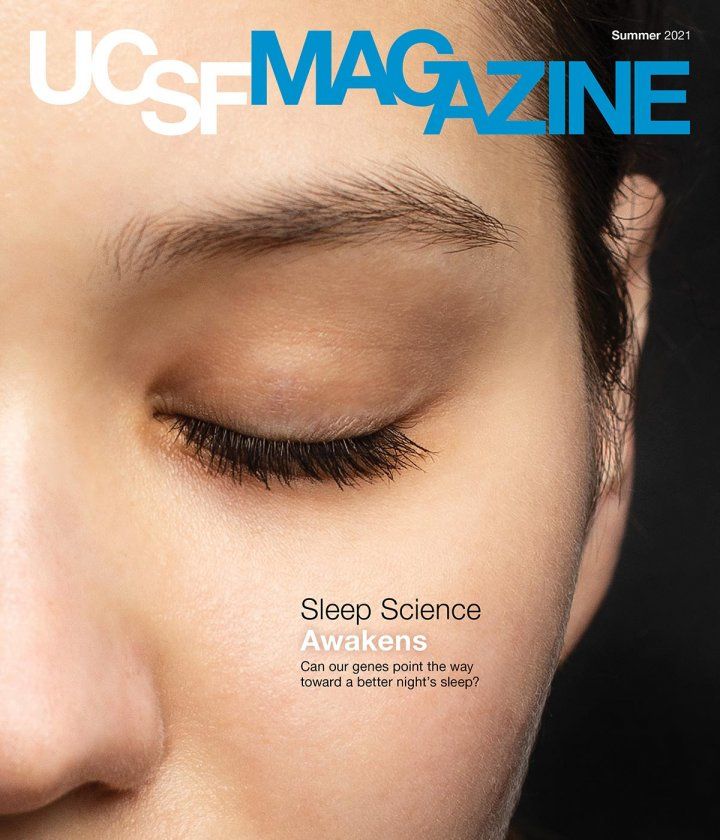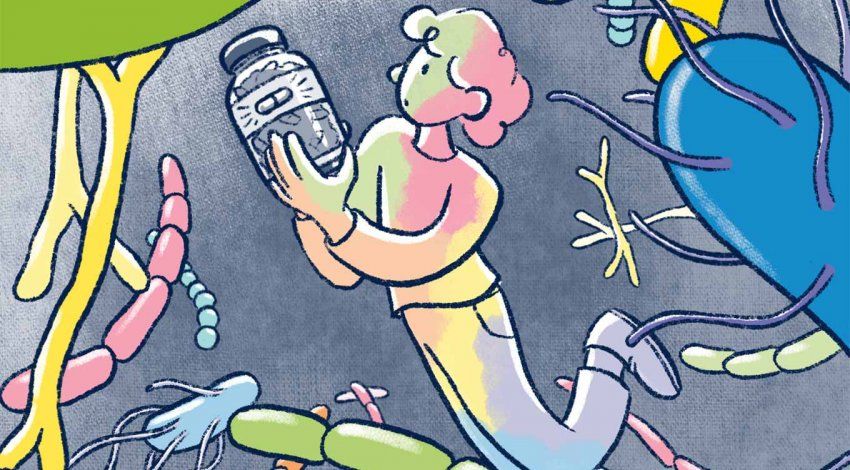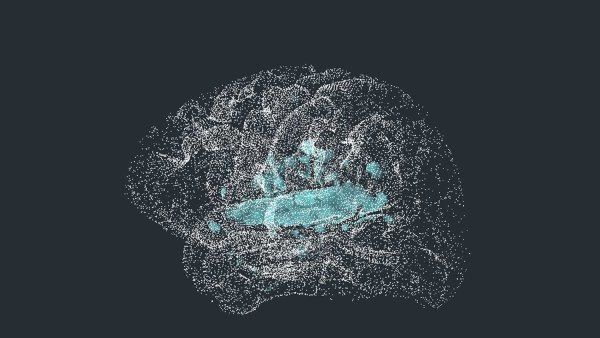
Brain Boosters: Can Puzzles and Pills Make Us Sharper?
Games and supplements claim to strengthen memory and cognition. Should you buy them?
Animation: Farah Hamade
Afraid of Alzheimer’s? You’re not alone. There’s even a name for such anxiety: athazagoraphobia, the fear of forgetting (or of being forgotten).
Arguably, it’s an existential problem. But it’s also a matter of how well our brains are working. Companies have cashed in on our desire to manipulate the latter, selling online games and pills that claim to reverse cognitive decline or improve focus and memory. Brain-health supplements alone are projected to reach $5.8 billion in sales by 2023.
But do they work? We asked UCSF researchers to help us understand how best to protect the brain.
Myth #1:
Puzzles and pills are the best way to stay sharp and avoid Alzheimer’s and the like.
Let’s start with the bad news! Companies selling over-the-counter solutions for memory and thinking problems don’t necessarily have strong scientific data behind their claims.
“Some people will listen to anyone who’s giving definitive answers because doctors aren’t able to yet,” says Joanna Hellmuth, MD, an assistant professor of neurology who’s written about the lack of good data behind popular protocols that supposedly delay or stop dementia. “I got into this because of my patients. Some are vulnerable and worried. You see people spend thousands of dollars on interventions that aren’t data-driven or effective, which diverts resources from things that could help them.”
The good news? Evidence-based ways to reduce your risk of developing dementia do exist, and some are free. Hellmuth’s top recommendation is three hours of cardiovascular exercise a week. Anything that benefits your heart can also protect your brain, from eating a healthy diet to keeping your blood pressure under control. And it’s not a bad idea to get your B-12 level checked. This vitamin is crucial for your nerves and neurons. Also, get enough sleep!
People who stay cognitively active are also less likely to get dementia. This just means trying new activities, whether it’s a work-related challenge or a hobby, like learning a new language. Games can fall into this category. In fact, UCSF researchers are investigating whether video games can improve memory in people with mild cognitive impairment. But games are not necessarily better for your brain health than, say, joining a book club. (Social connections can help protect cognition too.)
“You want to use it, or you’ll lose it,” Hellmuth says. “Forming new connections in your brain provides more resilience over time. If you want to pay to do an online game, great. But free activities are just as good, and it’s important that you don’t hate the activity.”
Myth #2:
Cognition problems always lead to terrifying outcomes.
It’s true that most common causes of changes in thinking and memory, including Alzheimer’s, have no cures yet. But there’s a broad spectrum of cognitive dysfunction. Having a few symptoms doesn’t mean you’re doomed to experience your worst-case scenario. And some causes of cognitive impairment, including alcohol and drug abuse, can be treated.
That said, if you’re worried about yourself or a loved one, that’s normal. You don’t need to feel bad about feeling bad.
“There’s a lot of shame and fear around cognitive disorders,” says Hellmuth. “We think of neurodegenerative diseases like Alzheimer’s a bit like cancer before cancer had treatments. It was this big scary thing that people didn’t want to talk about.
“Our brains allow us to be who we are. And when our brains aren’t working well, we think that we are personally failing.”
If you have neurological symptoms that are disrupting your life now, Hellmuth recommends getting a medical assessment. If you’re fretting over what might happen to your brain in the future, focus on what you can control. Remember those prevention tips? Try some. They can even improve thinking and memory for people who already have cognitive disorders.
Myth #3:
There’s no hope.
False. The brain has been difficult to study, yes. It’s complex – it contains some 86 billion neurons – and surrounded by bone. But scientists are making progress.
That includes researchers at the UCSF Weill Institute for Neurosciences, who have created a potential blood test for Alzheimer’s, identified a protein that could boost brain function, and much more. For example, UCSF recently shared promising findings about ISRIB, a drug that has restored memory in mice months after a traumatic brain injury (TBI). It’s even enhanced cognition in healthy mice.
Neuroscientist Susanna Rosi, PhD, a Lewis and Ruth Cozen Professor at UCSF, says clinical trials of ISRIB for patients with TBI and amyotrophic lateral sclerosis (ALS) could launch in the next year. But until we know more about its safety and efficacy in humans, Rosi urges patience. She’s already received hundreds of inquiries from people clamoring for the drug.
“There was one woman in Italy who said, ‘I saw that you can buy ISRIB on the black market,’” Rosi says. “Don’t do that. Please.”
ISRIB seems to reboot the brain’s ability to produce proteins after the brain’s integrated stress response has derailed it. A prolonged stress response seems to be a hallmark of aging, and it has been linked to ALS, Alzheimer’s, Parkinson’s, and other neurological diseases.
“It’s a paradigm shift. Each of those conditions has always been historically seen as independent from each other, but they might share a common pathway,” says Rosi. “This is the most exciting thing that I have ever seen in my career.”




